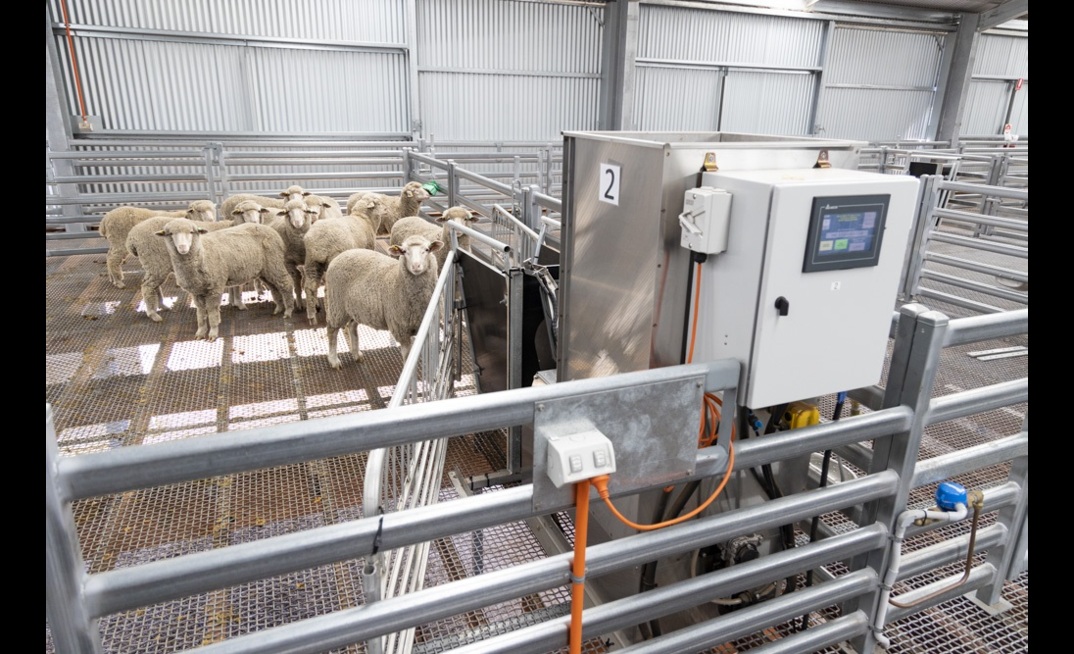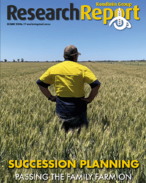The research is the first to be undertaken in a new Department of Primary Industries and Regional Development (DPIRD) 300-head Sheep Feed Intake Facility - the biggest in Australia - at its Katanning Research Station.
The project, led by DPIRD in partnership with Meat & Livestock Australia (MLA), aims to improve the feed conversion efficiency of sheep, which require less feed to produce more meat, as well as less methane and carbon dioxide.
DPIRD says the research will underpin the addition of sustainability traits to Australian Sheep Breeding Values (ASBVs) so farmers can select animals that achieve their breeding objectives.
Lambs from the department's long term Genetic Resource Flock at Katanning, which also receives funding from MLA, will be used for the new research project.
Project lead, DPIRD research scientist, Beth Paganoni said the new equipment in the Sheep Feed Intake Facility would enable accurate measures of feed intake, gas production and body composition to be measured together for the first time.
"It has previously been difficult to measure feed intake on large numbers of sheep accurately, but now we have the facilities and technology to do so," Paganoni said.
"Over the next five years we plan to measure the feed intake, growth and composition of about 4000 lambs from 100 sires to investigate the genetic relationships between feed intake, feed conversion efficiency and gas production.
"These ASBVs will assist the Australian sheep industry to breed a more efficient, sustainable flock, while reducing production costs and improving environmental outcomes to respond to customer demand for low emission meat and wool."
The Sheep Feed Intake Facility features automated feeders that weigh and disseminate precise amounts of feed through an individual feeder to 20 pens, which hold up to 15 sheep each.
Each sheep will have individual meals weighed using electronic identification technology and its total feed intake recorded throughout a 24-hour period.
A new Dual Energy X-ray Absorptiometry, or DEXA, machine will be used to objectively measure muscle, fat and bone weight, to provide a live analysis of body composition.
The emissions of each animal will also be measured using portable accumulation chambers.
The initial sheep diet will feature a high growth feed regime, such as feedlot grower pellets, to provide the foundation benchmark while, in time, the research could extend to poorer feed quality and additives.
"Comparisons will also be made between feed intake and body composition to determine the difference between sheep that have low or high feed efficiency," Paganoni said.
"This will include measurements of feed intake, growth, gas production, including carbon dioxide and methane, as well as body composition.
"This data will help to determine ASBVs for the efficient conversion of feed to products, including the methane produced."























